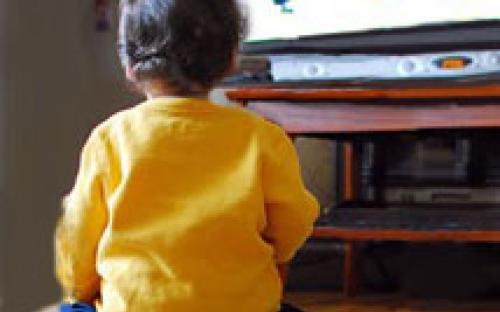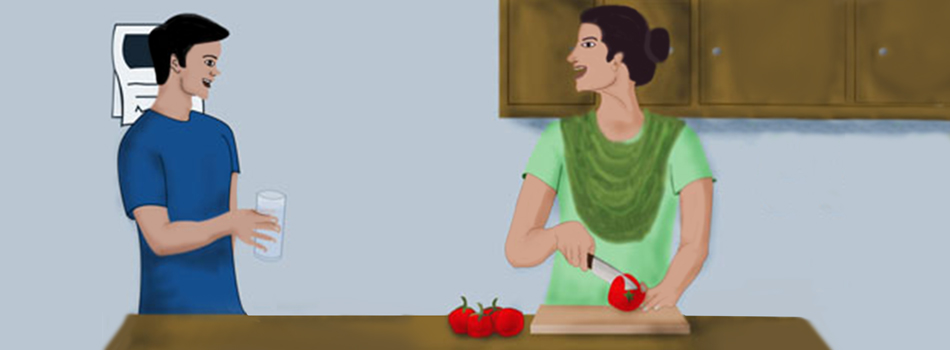
Is the TV your babysitter?
published : 16 August 2015
It is late afternoon. Your husband is going to come back from office anytime. You haven’t finished cooking dinner yet. You haven’t showered. The house is a mess. It desparately needs to be cleaned.
But you can’t do any of this because your one year old son is sticking to you like super glue. The picchie (little girl) who looks after him went to her village home a month ago, saying she will be back in a week. You haven’t heard from her since. You don’t know how to do everything you need to do with your son howling at the top of his lungs and rolling on the ground every time you leave him.
Then you turn on the TV. All on a sudden, your son changes. The violent warrior turns into a meek little lamb. He stares at the television with his mouth open, as if hypnotized. He does not even notice when you leave him and run to the kitchen.
Finally, you know what to do with him when you need to get something done. Have him sit in front of the TV.
Sounds familiar? If so, you are not the only one. Parents around the world use the TV as a babysitter. In a recent study, a quarter of all parents in UK said they used the TV as a baby-sitter. A 2005 survey found that one third young children in the US have TVs in their own room, and many are put to sleep with the television.
So what? you think. They are too young to learn bad things from the TV. They are just enjoying the sounds and the colors. Its not like they are neglecting their studies or anything. They are too young to study anyway. If turning the television on keeps them happy and let me do my work, then why not? What harm can it do?
Turns out that it can actually do a lot of harm. Over the past few years, researchers have conducted many studies on how watching television affects young children. Here is a summary of what these studies have found:
- The more TV a toddler watches, the higher the likelihood they will do badly at school and have poor health at the age of 10.
- Those who watch more than two hours of TV, and particularly those who watch more than three hours of television per day during childhood have 40% more chance of having attention problems in adolescence.
- Toddlers who watch more than two hours of television a day are more likely to be overweight at ages 3 and 4-and-a-half.
- Each additional hour of TV watched each day by kids results in an extra 167 calories consumed, often from sugary drinks, fast food and candy featured in commercials.
- Young children who spend more than two hours a day watching TV double their risk of developing asthma.
- Too much time spent in front of the television reduces likelihood of graduating from university.
- Those who watch a lot of television have a greater likelihood of developing Alzheimers.
So leting your child watch television is not as harmless as you think. If fact, the American Academy of Pediatrics recommends no TV for Children under the age of 2.
Easy to say, you think. There is no way I can make my child stop watching TV. Well it might be nearly impossible for us to make our children stop watching TV altogether, or stop ourselves for that matter. But we can definitely take steps to reduce watching TV, or increase the chance that when we do let them watch it, it is something beneficial. Here are a few steps to consider:
- Instead of letting your child watch TV, give him something to do that will keep him busy, such as drawing, coloring or building something.
- Try to involve him in what you are doing. For example, if you are cooking, give him a separate bowl with some food and tell him he can cook too. It will be a little messy, but you will both enjoy the experience.
- If your kid does have to watch TV, make sure it is something designed especially for children, something with a message you would like him to learn.
- Watch TV with your child. Use it as a conversation starter, to develop a better bond with your child.
- Limit your own TV watching! Your child won't listen to you if he sees you do it.
- Do not have the TV on all the time. If you need some sound, turn on some music.
Just remember, it does not have to be all or nothing. You can start with small steps. And every little step you take can have a lasting effect on your child’s future.


















